
A decade ago, I gave a talk on the Quiché-Mayan epic at the Popol Vuh Museum at Universidad Francisco Marroquín in Guatemala. It was flattering at first. The smallish auditorium was full. About 100 people. A lot for a topic in the humanities at a school devoted to law, business, economics, and dentistry. I spoke […]
Read More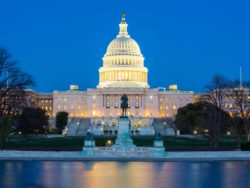
In college classrooms, students often hear the assertion that “advanced societies require extensive government intervention to flourish.” However, this perspective is shortsighted in understanding how America has prospered and operates. The reality is clear: governments currently control around 30 percent of GDP, non-profits add another 10 percent, leaving the vast majority, 60 percent, generated and […]
Read More
Much has been said about the decline of humanities, but one important aspect receives less attention: the humanities are easy and becoming easier. Certainly, this was the popular impression among students when I was an undergraduate at the University of Toronto. The softer the subject, the easier it was. My friends’ schedules, usually posted on […]
Read More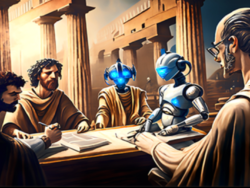
What are the important topics that make a university education valuable? And even while the student traverses the various courses? Or in the future, when the student takes his or her place in society? I attended Columbia College in the 1960s. I took the foundational classes in Western Civilization and Humanities, but I failed to […]
Read More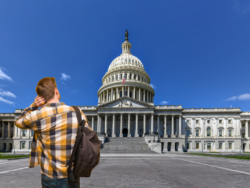
Apart from a brief overview of the Congressional appropriations and authorization process, there is minimal emphasis on the complexities of government spending and its consequential effects during civics education. This knowledge gap is exploited by activists and special interest groups, who face little opposition from taxpayers when advocating for or against government expenditures. But what […]
Read More
What’s been happening on elite campuses this spring is quite simple. Protesters have enacted “diversity, equity, and inclusion” (DEI). They’ve put into practice the DEI corollary known as “silence is violence.” The message is clear: Jews are not welcome short of performing the “silence is violence” pantomime. Protesters are engaging in red-guard-like behavior under the […]
Read More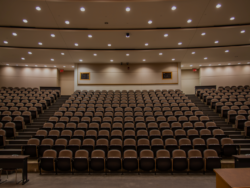
Bad pronouncements from fellow economists have historically caused lots of mischief, but there is something important on which most of them agree: people respond to positive incentives—money, material goods, power, even sexual attractions—and try to avoid negative incentives—losing large sums of money, freedom through imprisonment, etc. I have argued for decades that those incentive systems, […]
Read More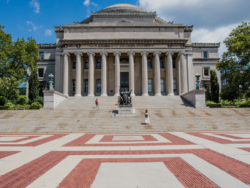
I recall an incident on a trading floor at a firm where I once worked. A young man—let’s call him William—got himself too long on the stock of Barclays as it crashed in concert with the collapse of Lehman Brothers on September 15, 2008. William was betting big that Barclays was oversold and that it […]
Read More
Author’s Note: This excerpt is from my weekly “Top of Mind” email, sent to subscribers every Thursday. For more content like this and to receive the full newsletter each week, sign up on Minding the Campus’s homepage. Simply go to the right side of the page, look for “SIGN UP FOR OUR WEEKLY NEWSLETTER, ‘TOP OF MIND,’” and […]
Read More
Claudine Gay’s recent spectacular flameout has sparked a smoldering brushfire over academic plagiarism. Suddenly, we are seeing plagiarism everywhere. Shortly after the exposure of Gay’s sins, Neri Oxman, who is a Harvard professor herself, and the wife of Bill Ackman—the hedge fund manager that led a donor’s backlash against Harvard’s tolerance of anti-Semitism—was accused of […]
Read More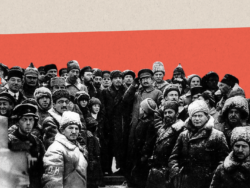
Socialists and Communists have been celebrating May Day for more than a century now—in the Communist regimes, by a grim display of marching soldiers, tanks, and artillery. On May Day, we should remember how many innocents were butchered by the fanatics who sought to impose the Communist nightmare on humanity—and how many millions led and […]
Read More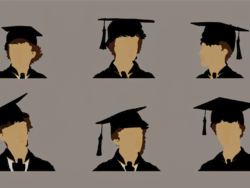
Scarcely a month passes without encountering yet one more new faculty group dedicated to promoting intellectual diversity on campus, yet one more manifesto celebrating campus free speech, and yet one more account of a canceled professor successfully suing those who canceled him. Then, add accounts of red states banning “diversity, equity, and inclusion” (DEI) from […]
Read More
Stacy Hawkins, a former vice dean and law professor at Rutgers Law School, recently wrote an article for the Chronicle of Higher Education. The article’s subtitle reads, “If critics have a problem with the goal of diversity, they should say so”—I’ll come to the main title later. As one of these critics, I’ve been vocal […]
Read More
As Lawrence E. Harrison shows, a nation is a state of mind, which means my parents had a transnational marriage. Mom and Dad were both children of Sicilian immigrants, but my dad was American while my mom was Sicilian. Sicilians distrust authorities. From Trump voters to Harvard leaders, my fellow Americans are becoming as Sicilian […]
Read More
History shows that lofty ideals predicated upon political utopianism and social egalitarianism often generate feel-good, do-bad policies that lead to disastrous outcomes. As Thomas Sowell has sharply observed, “[i]f there is anything worse than unfairness, it is make-believe fairness.” The exhaustion of the #MeToo movement provides a case in point for the unintended consequences and […]
Read More
Author’s Note: This excerpt is from my weekly “Top of Mind” email, sent to subscribers every Thursday. For more content like this and to receive the full newsletter each week, sign up on Minding the Campus’s homepage. Simply go to the right side of the page, look for “SIGN UP FOR OUR WEEKLY NEWSLETTER, ‘TOP OF MIND,’” and […]
Read More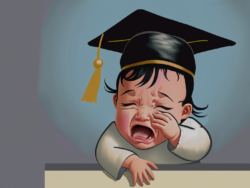
Editor’s Note: This article was originally published by The American Postliberal on March 22, 2024 and is crossposted here with permission. If you have ever been in a classroom where some sort of deadline is approaching, chances are that you have witnessed what I like to call a “half-hearted mini rebellion.” This is a situation in […]
Read More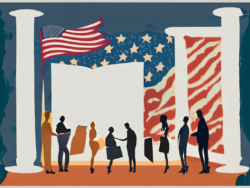
As a countermeasure to action civics, which aims to convert the “traditional subject of civics into a recruitment tool of the progressive left,” it is crucial for students to engage in civic behavior actively. This behavior, rooted in a nonpartisan American pluralism, accentuates the rights and duties of citizenship in various spheres-school, home, community, and […]
Read More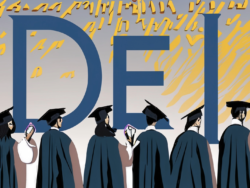
Closing “diversity, equity, and inclusion” (DEI) offices around the country is a powerful step in halting the illiberal and divisive harm-centric monoculture that has taken over higher education. However, there remain far too many student-facing administrative offices that seek the same goals. Whether in residential services or student life offices, administrators wield significant power and […]
Read More
“For in politics, as in religion, it is equally absurd to aim at making proselytes by fire and sword. Heresies in either can rarely be cured by persecution.” —Alexander Hamilton, Federalist 1 All university-level students should read, study, and discuss The Federalist Papers (1787–88). This most sacred document of the American founding explains the logic […]
Read More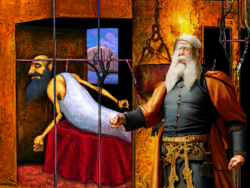
Many philosophers, social thinkers, legislators, and those delirious with power have proposed ways to fix the human condition. Societies themselves have often been organized, often by custom as well as laws, to shape the odd ways in which humans behave—odd ways that often emanate from a desire for individual freedom. Those fixes and organizational principles […]
Read More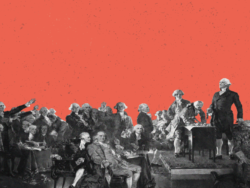
Calvin Coolidge said it best: “To live under the American Constitution is the greatest political privilege that was ever accorded to the human race.” Every American should know that wonderful truth. Learning it should be the keystone of social studies instruction in our schools. That’s why the Civics Alliance and Freedom in Education are publishing […]
Read More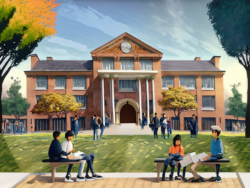
In most parts of the world, lawyers are formally trained in an undergraduate degree program. The Bachelor of Law (LL.B), is also an accelerated three-year curriculum. In the United States it takes over twice as long. First you need a 4-year undergraduate degree in any subject—a gratuitous requirement, as there is no such thing as […]
Read More
Editor’s Note: David Randall’s Curriculum of Liberty illuminates the pressing demand for American higher education to equip students with essential knowledge, character, and tools needed to confront contemporary challenges, revitalize the American republic, and safeguard Western heritage alongside the principles of free inquiry. This essay draws inspiration from his groundbreaking work and marks the inaugural […]
Read More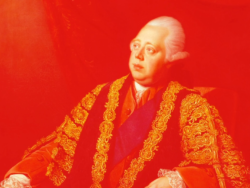
The nation’s 250 Anniversary is only 29 months away. The National Association of Scholars is commemorating the events that led up to the Second Continental Congress officially adopting the Declaration of Independence on July 4, 1776. This is the sixth installment of the series. Find the fifth installment here. “His Majesty trusts that no opposition […]
Read More
The era of Big Science began formally in 1950, when the National Science Foundation opened its doors. Its mission was to fulfill a hopeful promise: for government to fund the very best academic science, to explore science’s “endless frontier,” in the inspiring words of Vannevar Bush, President Roosevelt’s—and subsequently President Truman’s— science czar. There was […]
Read More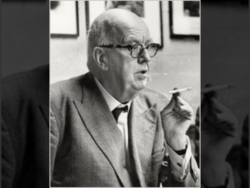
A New Science Culture In 1959, British novelist and one-time scientist C. P. Snow delivered a lecture at Cambridge called “The Two Cultures and the Scientific Revolution.” He accused humanists of being scientifically ignorant and not knowing about the second law of thermodynamics—not to mention the non-conservation of parity. Science and literature—the humanities—were two separate […]
Read More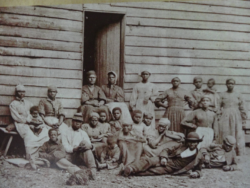
Author’s Note: The following is based on a more comprehensive paper titled “Slavery Revisited: Time on the Cross at 50,” published in the Spring 2024 edition of the Independent Review. Most serious works of scholars are respectfully evaluated by modest numbers of colleagues and occasionally play a small role in determining the prevailing interpretation of […]
Read More
Public institutions typically charge out-of-state students much higher tuition than in-state students. Bryan Caplan and Alex Tabarrok, two leading libertarian economists, have been discussing the puzzle of why that is the case. They correctly rule out the monopoly or cartel explanation. If public colleges were a monopoly or cartel, they could charge higher prices to […]
Read More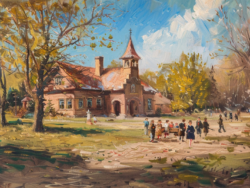
Reflecting on my teaching journey that spanned from the late 1970s to 2020, I can’t help but notice the stark contrast in educational approaches. When I started, education was centered around traditional book learning and assessments, a teacher-led process that continued into the 1990s. However, as I retired from full-time teaching in 2020 and transitioned […]
Read More